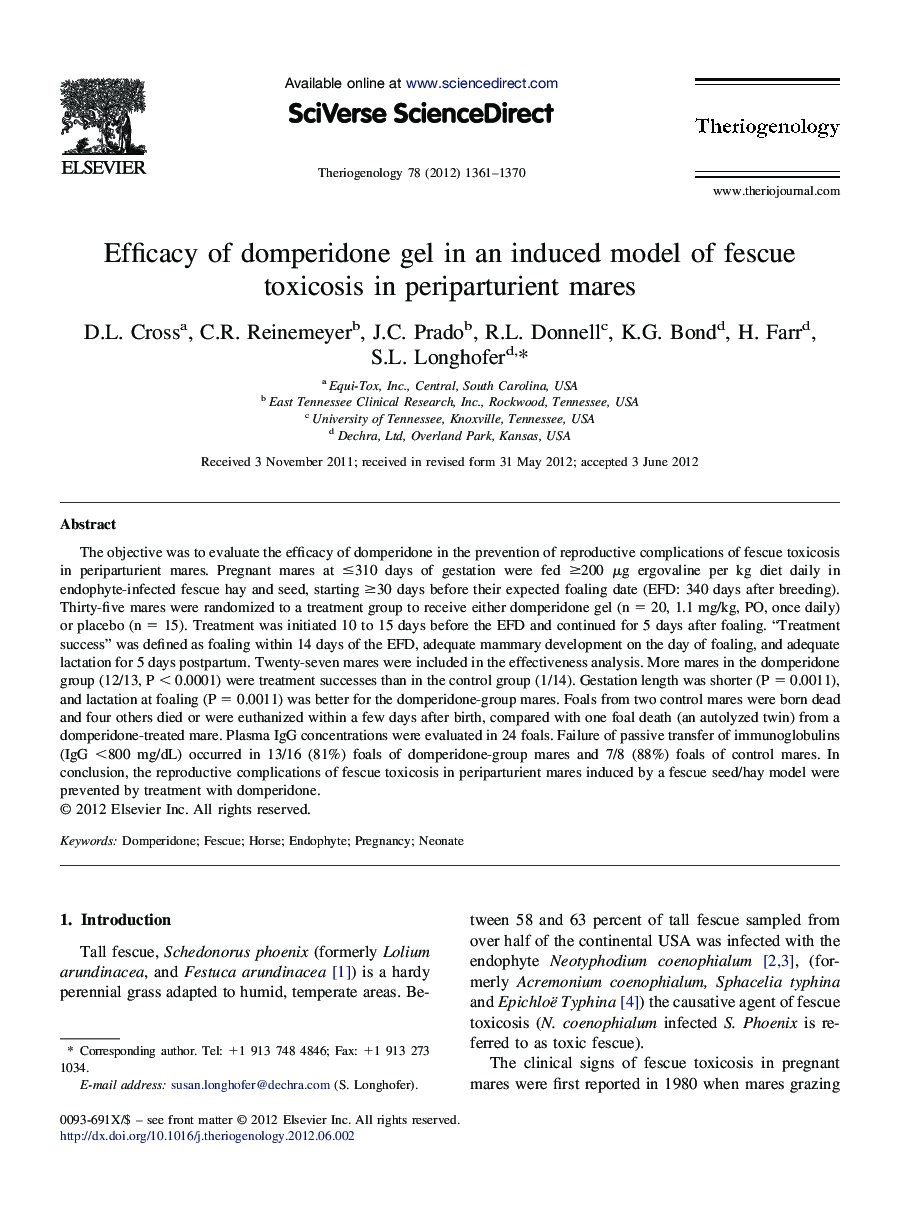| Article ID | Journal | Published Year | Pages | File Type |
|---|---|---|---|---|
| 10892384 | Theriogenology | 2012 | 10 Pages |
Abstract
The objective was to evaluate the efficacy of domperidone in the prevention of reproductive complications of fescue toxicosis in periparturient mares. Pregnant mares at â¤310 days of gestation were fed â¥200 μg ergovaline per kg diet daily in endophyte-infected fescue hay and seed, starting â¥30 days before their expected foaling date (EFD: 340 days after breeding). Thirty-five mares were randomized to a treatment group to receive either domperidone gel (n = 20, 1.1 mg/kg, PO, once daily) or placebo (n = 15). Treatment was initiated 10 to 15 days before the EFD and continued for 5 days after foaling. “Treatment success” was defined as foaling within 14 days of the EFD, adequate mammary development on the day of foaling, and adequate lactation for 5 days postpartum. Twenty-seven mares were included in the effectiveness analysis. More mares in the domperidone group (12/13, P < 0.0001) were treatment successes than in the control group (1/14). Gestation length was shorter (P = 0.0011), and lactation at foaling (P = 0.0011) was better for the domperidone-group mares. Foals from two control mares were born dead and four others died or were euthanized within a few days after birth, compared with one foal death (an autolyzed twin) from a domperidone-treated mare. Plasma IgG concentrations were evaluated in 24 foals. Failure of passive transfer of immunoglobulins (IgG <800 mg/dL) occurred in 13/16 (81%) foals of domperidone-group mares and 7/8 (88%) foals of control mares. In conclusion, the reproductive complications of fescue toxicosis in periparturient mares induced by a fescue seed/hay model were prevented by treatment with domperidone.
Related Topics
Life Sciences
Agricultural and Biological Sciences
Animal Science and Zoology
Authors
D.L. Cross, C.R. Reinemeyer, J.C. Prado, R.L. Donnell, K.G. Bond, H. Farr, S.L. Longhofer,
